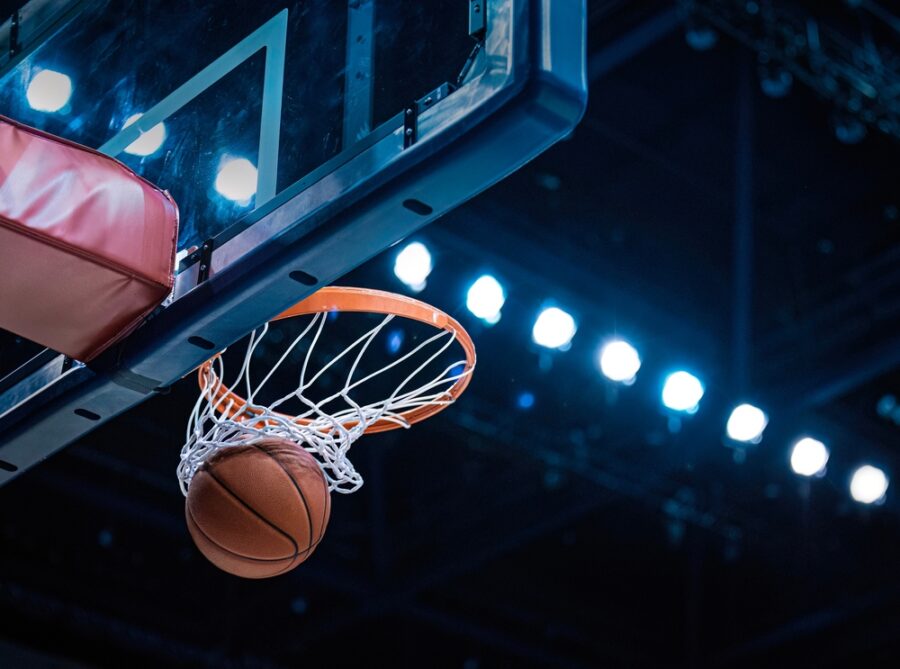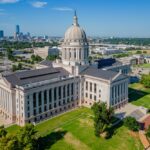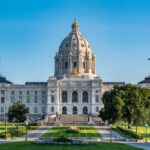Legislative gridlock on sports betting is costing Oklahoma millions

Oklahoma lawmakers are deadlocked on sports betting legislation, and it is costing the state millions in potential revenue.
The claim was aired at a Senate panel, and according to one of those who spoke at the hearing, Sports Betting Alliance member Frank Sizemore, neighboring states and illegal operators were cashing in on the absence of legal sports betting in the state.
“Sports betting is happening now in Oklahoma. It’s just on illegal platforms and with bookies down the street.”
Sports betting is legal in 39 states, supporting roughly 2 million jobs and generating around US$325 billion in national economic impact. Sizemore added that legal markets would provide transparency and tax revenue, with the average state betting levy around 16%.
Oklahoma’s legalization gridlock is mainly because of the state’s tribal gaming compacts, which give tribes exclusive rights to operate gambling in exchange for fees.
Tribes contributed more than $221 million to the state in fees during the last fiscal year, and speaking at the hearing, Matthew Morgan, Chairman of the Oklahoma Indian Gaming Association, said any change in that arrangement could lead to monetary damages.
Will Syring, Vice President of Corporate Partnerships for the Oklahoma City Thunder, said that legalization could give a boost to fan engagement and create new revenue streams.
Abi Bray brings strong researching skills to the forefront of all of her writing, whether it’s the newest slots, industry trends or the ever changing legislation across the U.S, Asia and Australia, she maintains a keen eye for detail and a passion for reporting.
Verticals:
Sectors:
Topics:
Dig Deeper
The Backstory
How Oklahoma reached another impasse
Oklahoma’s latest stalemate on sports wagering did not arrive by surprise. It capped a third straight session in which policymakers tried to thread the needle between modernizing betting and preserving the state’s longstanding tribal gaming framework. Two measures — House Bill 1047 and House Bill 1101 — appeared to gain traction this spring before they stalled ahead of a key deadline. Lawmakers advanced both proposals out of committee with bipartisan support, but leadership held them back to buy time for consensus on how to handle mobile wagering and to avoid overstepping tribal prerogatives. As outlined in our coverage of the delay, Oklahoma sports betting bills stalled before the legislative deadline despite backers arguing they were closer than ever.
The immediate sticking point is not whether sports betting will exist — it already does, via illegal channels and in neighboring markets — but who governs the online layer and under what protections. Backers of legalization have framed it as a shift from opaque activity to a regulated market with age checks, problem-gambling tools and tax capture. Skeptics worry about quick expansion via smartphones, the impact on vulnerable users and the potential for state-tribal disputes if compact terms are disrupted. Those crosscurrents shaped the pause this session and largely mirror the debate playing out nationwide.
Compacts, control and the cost of delay
Oklahoma’s tribal compacts are the fulcrum. Tribes hold exclusive gaming rights in exchange for state fees, a model that has delivered reliable revenue but leaves little room for unilateral change. HB 1047 sought to create a model compact for internet sports betting that keeps Class III wagering authority with tribes. HB 1101 would put the question to voters if a negotiated path falters. As our earlier story details, the bills cleared Senate Business and Commerce with strong margins, but sponsors agreed to stand down to allow more talks with tribal leaders on mobile rules.
The policy math is straightforward. Every month without legalization pushes betting dollars to neighboring states or underground operators, leaving the state with neither oversight nor a cut of activity that is already happening. Proponents cite average tax rates around the mid-teens in legal markets and point to consumer safeguards that do not exist in illicit channels. Opponents counter that mobile wagering can accelerate gambling harms and that the state must avoid destabilizing compacts that fund essential services. The back-and-forth has real fiscal stakes. Tribes contributed more than $200 million in fees last fiscal year under existing agreements, and any misstep that triggers litigation or compact strain could jeopardize that flow even as lawmakers chase incremental sports-betting revenue.
Deadlines missed, but a blueprint remains
The session’s missed deadline did not erase the contours of a compromise. The two-bill approach offers a clear ladder: first, a compact-based, tribe-led framework via HB 1047 that keeps operational control with tribal operators; second, a voter-backed mandate via HB 1101 if negotiations stall. As captured in our explainer, lawmakers paused to set “guardrails” on mobile wagering, a term that encompasses geolocation, advertising standards, responsible gaming funding, limits on in-play markets that target minors and enforcement against unlicensed platforms.
Several practical issues await resolution. Revenue sharing must align with compact obligations to avoid claims of bad faith. Mobile skins and brand count need to be defined to prevent market fragmentation while ensuring competition among tribal enterprises. Integrity monitoring and data standards require harmonization so collegiate and professional sports bodies can rely on consistent reporting. None are insurmountable, but each requires precise drafting and buy-in from the Oklahoma Indian Gaming Association. The longer that takes, the more betting volume flows elsewhere.
Lessons from states moving in opposite directions
Oklahoma is not weighing these choices in a vacuum. In Nebraska, lawmakers advanced an online sports betting measure out of committee that would anchor operators at licensed racetracks and earmark revenue for property tax relief. Sponsors argued that Nebraskans already cross state lines to bet, so regulation would repatriate dollars and add consumer protections. That push highlights a practical calculus: prohibition has not halted demand, and states are adjusting frameworks to capture spending while managing risk.
Minnesota illustrates the countercurrent. Ahead of its session, a Senate finance hearing resurfaced social and health concerns tied to mobile wagering, with opponents emphasizing addiction risks and calling the industry predatory. Supporters responded that legalization would regulate behavior that already exists and fund treatment. Our report on the hearing, Minnesota sports betting faces renewed opposition, shows how tax rates, allocation of proceeds and scope of mobile access can become flashpoints. For Oklahoma, the takeaway is that policy design — tax levels, responsible gaming earmarks, and limits on marketing — will largely determine whether critics engage or dig in.
Digital lottery growth underscores shifting customer behavior
The broader gaming market is moving online beyond sportsbooks, a trend underscored by lottery activity. DraftKings’ lottery arm Jackpocket reported a record Mega Millions jackpot win in Arizona through its app, highlighting how digital access can scale participation and drive headline payouts. Meanwhile, courier service Jackpot.com plans a revamp of its Mega Millions experience to simplify play and tout better non-jackpot odds across several states. These developments are not about sports betting per se, but they speak to consumer expectations for mobile convenience, quick settlement and seamless payments. They also show that guardrails — identity checks, spend limits, data privacy and clear disclosures — can be embedded in product design.
For Oklahoma, the lottery trend is a signal. The longer the state delays a mobile framework for sports betting, the more residents will gravitate to digital offerings across borders or in adjacent categories. That migration makes it harder to recapture users later and weakens the state’s leverage over advertising, data and harm mitigation practices.
The stakes: sovereignty, safeguards and market share
What happens next will hinge on whether negotiators can align tribal sovereignty with a mobile model that satisfies public health concerns and budget goals. The legislative architecture is already on the table in HB 1047 and HB 1101. The open questions are operational: how many mobile skins per tribe, how to structure revenue shares, what advertising and in-play limits apply, and how to fund treatment and enforcement at levels commensurate with projected handle.
Other states’ moves offer a playbook. Nebraska’s committee vote shows that tight venue anchoring and clear revenue uses can build momentum. Minnesota’s push-pull shows that aggressive tax rates and robust problem-gambling funding can soften opposition, though not erase it. Lottery apps show where consumers are headed and what responsible design can look like at scale. For Oklahoma, the cost of another year of drift is measurable in lost taxes and intangible in consumer risk. The payoff for a carefully negotiated framework is a durable compact with tribes, a safer market for bettors and a defensible revenue stream that does not sacrifice sovereignty to expediency.






